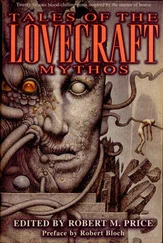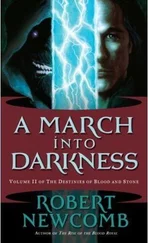Robert Pirsig - Lila. An Inquiry Into Morals
Здесь есть возможность читать онлайн «Robert Pirsig - Lila. An Inquiry Into Morals» весь текст электронной книги совершенно бесплатно (целиком полную версию без сокращений). В некоторых случаях можно слушать аудио, скачать через торрент в формате fb2 и присутствует краткое содержание. Жанр: Современная проза, на английском языке. Описание произведения, (предисловие) а так же отзывы посетителей доступны на портале библиотеки ЛибКат.
- Название:Lila. An Inquiry Into Morals
- Автор:
- Жанр:
- Год:неизвестен
- ISBN:нет данных
- Рейтинг книги:3 / 5. Голосов: 1
-
Избранное:Добавить в избранное
- Отзывы:
-
Ваша оценка:
- 60
- 1
- 2
- 3
- 4
- 5
Lila. An Inquiry Into Morals: краткое содержание, описание и аннотация
Предлагаем к чтению аннотацию, описание, краткое содержание или предисловие (зависит от того, что написал сам автор книги «Lila. An Inquiry Into Morals»). Если вы не нашли необходимую информацию о книге — напишите в комментариях, мы постараемся отыскать её.
Lila. An Inquiry Into Morals — читать онлайн бесплатно полную книгу (весь текст) целиком
Ниже представлен текст книги, разбитый по страницам. Система сохранения места последней прочитанной страницы, позволяет с удобством читать онлайн бесплатно книгу «Lila. An Inquiry Into Morals», без необходимости каждый раз заново искать на чём Вы остановились. Поставьте закладку, и сможете в любой момент перейти на страницу, на которой закончили чтение.
Интервал:
Закладка:
This seemed odd to Phædrus because in his own conversations with him Dusenberry was not at all unsociable. He sometimes looked unsociable with his arched eyebrows and downturned mouth, but when Phædrus had gotten to know him, Dusenberry was actually gabby in a high-spirited, gleeful, maiden-auntish sort of way. It was a slightly gay style; tart, and somewhat backbiting; and at first Phædrus thought this was why they were so down on him. Montanans in those days were supposed to look and act like Marlboro ads, but in time Phædrus saw that wasn’t what caused the alienation. It was just Dusenberry’s general overall eccentricity. Over the years small eccentric differences in a small college department can grow into big differences, and Dusenberry’s differences were not so small. The biggest difference was revealed in a line Phædrus heard a number of times, a disdainful: Oh, yes, Dusenberry… Dusenberry and his Indians.
When Dusenberry spoke of other faculties it was with equal disdain: Oh yes, the English department. But he seldom spoke of them at all. The only subject he spoke about with any sincere enthusiasm was Indians, and particularly the Rocky Boy Indians, the Chippewa-Cree on the Canadian border about whom he was writing his Ph.D. thesis in anthropology. He let it be known that except for the Indians he had befriended for twenty-one of his twenty-three years as a teacher he regarded all these years as a waste of his life.
He was the advisor for all the Indian students at the college and had held this post for as long as anyone could remember. The students were a connecting link. He’d made a point to know their families and visit them and use this as an entry point into their lives. He spent all the weekend and vacation time he could on the reservations, participating in their ceremonies, running errands for them, driving their kids to the hospital when they were sick, speaking to state officials when they got in trouble, and beyond that, completely losing himself into the ways and personalities and secrets and mysteries of these people he loved a hundred times better than his own.
Within a few years when his degree was completed he would be leaving English teaching forever and teaching anthropology instead. One would guess that this would be a happy solution for him, but from what Phædrus heard it was already apparent that it would not be. He was not only an eccentric in the field of English he was an eccentric in anthropology as well.
The main part of his eccentricity seemed to be his refusal to accept objectivity as an anthropological criterion. He didn’t think objectivity had any place in the proper conduct of anthropological study.
This is like saying the Pope has no place in the Catholic Church. In American anthropology that is the worst possible apostasy and Dusenberry was quickly informed of it. Of all the American universities he had applied to for Ph.D. study, every one had turned him down. But rather than change his beliefs he had gone around the whole American university system to Prof. Åke Hultkranz in Uppsala, Sweden’s oldest university, and was about to receive his Ph.D. there. Whenever Dusenberry talked about this, a cat-who-ate-the-canary smile would come over his face. An American taking a Ph.D. in Sweden on the Anthropology of American Indians? It was ludicrous!
The trouble with the objective approach, Dusenberry said, is that you don’t learn much that way… The only way to find out about Indians is to care for them and win their love and respect… then they’ll do almost anything for you… But if you don’t do that… He would shake his head and his thoughts would go trailing off.
I’ve seen these "objective" workers come on the reservations, he said, and get absolutely nowhere…
There’s this pseudo-science myth that when you’re "objective" you just disappear from the face of the earth and see everything undistorted, as it really is, like God from heaven. But that’s rubbish. When a person’s objective his attitude is remote. He gets a sort of stony, distant look on his face.
The Indians see that. They see it better than we do. And when they see it they don’t like it. They don’t know where in hell these "objective" anthros are at and it makes them suspicious, so they clam up and don’t say anything…
Or they’ll just tell them nonsense… which of course a lot of the anthros believe at first because they got it "objectively"… and the Indians sometimes laugh at them behind their backs.
Some of these anthropologists make big names for themselves in their departments, Dusenberry said, because they know all that jargon. But they really don’t know as much as they think they do. And they especially don’t like people who tell them so… which I do… He laughed.
So that’s why I’m not objective about Indians, he said. I believe in them and they believe in me and that makes all the difference. They’ve told me things they’ve said they never told any other white man because they know I’ll never use it against them. It’s a whole different way of relating to them. Indians first, anthropology second…
That limits me in a lot of ways. There’s so much I can’t say. But it’s better to know a lot and say little, I think, than know little and say a lot… don’t you agree? Because Phædrus was new to the English department Dusenberry took a curious interest in him. Dusenberry was curious about everything, and as he got to know Phædrus better the curiosity grew. Here to Dusenberry’s surprise was someone who seemed even more alienated than he was, someone who had done graduate work in Hindu philosophy at Benares, India, for God’s sake, and knew something about cultural differences. Most important, Phædrus seemed to have a very analytic mind.
That’s what I don’t have, Dusenberry had said. I know volumes about these people but I can’t structure it. I just don’t have that kind of mind.
So every chance he got he poured hours and hours of information about American Indians into Phædrus' ears, hoping to get back from him some overall structure, some picture of what it all meant in larger terms. Phædrus listened but he never had any answers.
Dusenberry was particularly concerned about Indian religion. He was sure it explained why the Indians were so slow in integrating into the surrounding white culture. He’d noticed that tribes with the strongest religious practices were the most backward by white standards and he wanted Phædrus to provide some theoretical support for this. Phædrus thought Dusenberry was probably right but couldn’t think of any theoretical support and thought the whole thesis was somewhat dull and academic. For more than a year Dusenberry never tried to correct this impression. He just kept on feeding information about Indians to Phædrus and getting back Phædrus' lack of ideas. But then, a few months before Phædrus was to leave Bozeman for another teaching job, Dusenberry said to him, There’s something I think I have to show you.
Where? Phædrus asked.
On the Northern Cheyenne reservation, down in Busby. Have you been there?
No, Phædrus said.
Well, it’s a wretched place but I’ve promised to take some students down and you should come along too. I want you to see a meeting of the Native American Church. The students won’t be going to it, but you should.
You’re going to convert me? Phædrus said facetiously.
Maybe, Dusenberry said.
Dusenberry explained that they would be sitting in a teepee all night long until sun-up. After midnight Phædrus could leave if he wanted, but before that no one was permitted to leave.
Читать дальшеИнтервал:
Закладка:
Похожие книги на «Lila. An Inquiry Into Morals»
Представляем Вашему вниманию похожие книги на «Lila. An Inquiry Into Morals» списком для выбора. Мы отобрали схожую по названию и смыслу литературу в надежде предоставить читателям больше вариантов отыскать новые, интересные, ещё непрочитанные произведения.
Обсуждение, отзывы о книге «Lila. An Inquiry Into Morals» и просто собственные мнения читателей. Оставьте ваши комментарии, напишите, что Вы думаете о произведении, его смысле или главных героях. Укажите что конкретно понравилось, а что нет, и почему Вы так считаете.











